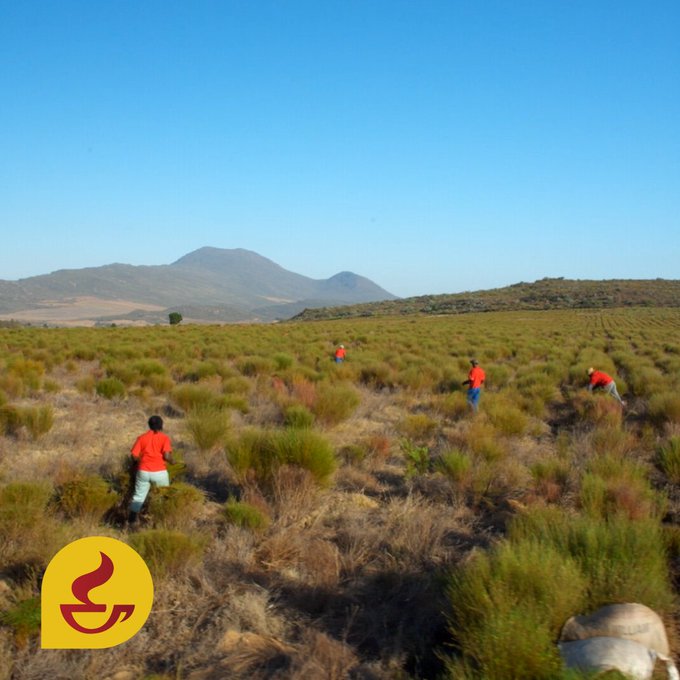Rooibos, the plant farmed exclusively in the Western Cape, is growing into one of the most sought after agricultural products to invest in globally, according to the South African Rooibos Council (SARC).
With health-conscious consumers becoming increasingly expectant of agriculture to produce healthy food and products that promote wellness, the increased demand for Rooibos could make the country one of the eminent export producers of high-value agricultural products in the world – if fully exploited.
This comes as good news for Rooibos farmers in the Cederberg and Sandveld areas of the Western Cape, the only Rooibos plantations in the world, who have taken on the challenge of growing Rooibos for the world this harvest season.
According to Nicie Vorster, spokesperson for the SARC, a record 57 000 hectares of Rooibos has been planted, almost double that of a decade ago. This comes as more farmers in the production areas, especially in the Swartland region, are clearing existing farmland to make way for Rooibos.
The sector is also attracting others working in agriculture, such as grain farmers who want to diversify their crops and take advantage of the easier growing conditions for Rooibos specifically in their area. According to SARC this tiny geographical region provides the perfect environment for Rooibos cultivation. As a hardy, dry land crop, Rooibos is often subjected to drought conditions and is typically not affected as harshly as other more rain-dependent crops.
The increase in Rooibos cultivation in the area follows the growing demand for the plant both locally and internationally. In the past ten years, production has varied between 10 000 and 18 000 tons a year and global consumption has reached 15 000 tons. These amounts are expected to increase as demand does, according to the SARC.
About half (between 6000 and 7000 tonnes) of Rooibos is still consumed locally, with the rest exported to more than 30 countries across the world. Germany, the Netherlands, Japan, the United Kingdom and the United States of America are the biggest importers of Rooibos.
These major Rooibos markets consider the tea a premium healthy lifestyle product and promote it in its pure and unblended form, which their health-conscious consumers want more of, Vorster says.
Apart from its health benefits, it is also the versatility of the plant that attracts global markets. “Rooibos is used in multiple other applications, ranging from beauty products and nutraceuticals to alcoholic drinks, confectionary and everyday foodstuffs, such as yoghurt and cereal” says Vorster to Cape Talk. “Every year, we are seeing new and exciting innovations in the Rooibos category as entrepreneurs and branders experiment with the product.”
Vorster says that in furthering the economic possibilities of the homegrown brew, Rooibos may even be flavoured with dagga in future.
Rooibos as an industry provides income and employment to approximately 8 000 farm labourers in South Africa. Further employment is created in upstream activities such as processing, packaging and retailing of the plant.
While most South Africans see Rooibos as a beverage, the economic possibilities for the plant are endless.
Not long ago a local designer created a selection of artisan handbags made from recycled rooibos tea bags that are now being sold in Paris.
This article was sourced from CapeTown Etc. and written by Reyanah Slamdien; for the original article, click here.
